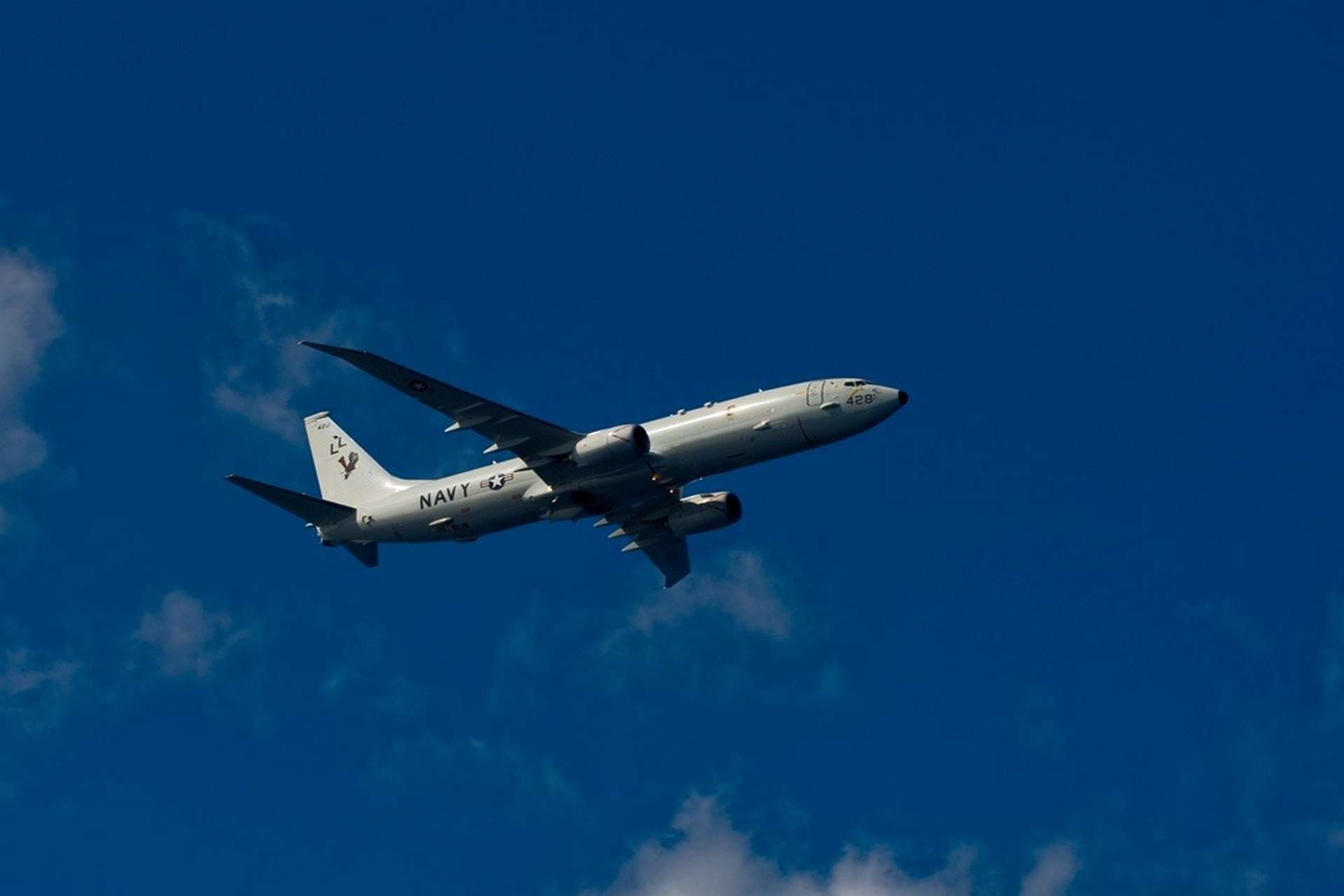BAE Systems Wins Major Contract for Electronic Warfare Pods on US Navy P-8A Aircraft

{loadposition bannertop}
Breaking news
{loadposition sidebarpub}
BAE Systems secured on June 5, 2024 a $95 million contract to provide advanced electronic countermeasure pods for the U.S. Navy’s P-8A Poseidon multi-mission maritime aircraft to defend against missile threats. These electronic warfare pods, designed to detect and counter imminent threats, aim to safeguard the Poseidon and its crew while extending the aircraft’s operational range in contested environments.Follow Army Recognition on Google News at this link
A U.S. Navy P-8A Poseidon aircraft assigned to Patrol Squadron 30 flies above the aircraft carrier USS Harry S (Picture source: US DoD)
The P-8A Poseidon, developed by Boeing, is primarily designed for anti-submarine warfare (ASW), anti-surface warfare (ASUW), and intelligence, surveillance, and reconnaissance (ISR) missions. Utilizing the Boeing 737-800 airframe, the Poseidon integrates advanced sensor and communication systems to collect and share critical maritime data. It is equipped with sophisticated sensors like radar, sonobuoys, and electronic support measures.
First flown in 2009, the P-8A Poseidon officially entered service with the U.S. Navy in November 2013. It has since become a crucial part of the Navy’s maritime patrol and reconnaissance capabilities. The aircraft is also operated by the armed forces of the United Kingdom, Australia, India, and Norway, valued for its prowess in maritime patrol operations including overflight missions, coastal surveillance, and open ocean reconnaissance.
Don Davidson, Director of Advanced Compact Electronic Warfare Solutions at BAE Systems, emphasized the company’s collaboration with the U.S. Navy to provide innovative solutions aimed at protecting this significant, high-value aircraft. He highlighted the rapid development of a highly capable system using proven technologies to defend against air-to-air and surface-to-air guided threats.
BAE Systems’ survivability pod features early threat detection and effective countermeasures to safeguard high-value U.S. and international airborne assets. The system’s flexible, open architecture facilitates rapid and cost-effective modernization, is compatible with future threat detection and decoy capabilities, and can incorporate third-party electronic warfare techniques.
This engineering and manufacturing development (EMD) contract follows a rapid-response contract issued by the U.S. Navy in 2021 to demonstrate the system. The BAE Systems team designed, built, and tested a demonstration pod, showcasing strong military-industry collaboration and rapid prototyping. The EMD contract was awarded following successful airworthiness and effectiveness testing.
The P-8A self-protection pod is part of BAE Systems’ Intrepid Shield™, a layered approach to aircraft and ground platform survivability that leverages the entire electromagnetic spectrum to detect, exploit, and counter advanced threats. The pod can be quickly adapted to other high-value airborne assets, enabling operations in contested environments.
Work on the P-8A pod and its components is carried out at BAE Systems’ state-of-the-art facilities in Nashua, New Hampshire, and Austin, Texas.

{loadposition bannertop}
Breaking news
{loadposition sidebarpub}
BAE Systems secured on June 5, 2024 a $95 million contract to provide advanced electronic countermeasure pods for the U.S. Navy’s P-8A Poseidon multi-mission maritime aircraft to defend against missile threats. These electronic warfare pods, designed to detect and counter imminent threats, aim to safeguard the Poseidon and its crew while extending the aircraft’s operational range in contested environments.
Follow Army Recognition on Google News at this link
A U.S. Navy P-8A Poseidon aircraft assigned to Patrol Squadron 30 flies above the aircraft carrier USS Harry S (Picture source: US DoD)
The P-8A Poseidon, developed by Boeing, is primarily designed for anti-submarine warfare (ASW), anti-surface warfare (ASUW), and intelligence, surveillance, and reconnaissance (ISR) missions. Utilizing the Boeing 737-800 airframe, the Poseidon integrates advanced sensor and communication systems to collect and share critical maritime data. It is equipped with sophisticated sensors like radar, sonobuoys, and electronic support measures.
First flown in 2009, the P-8A Poseidon officially entered service with the U.S. Navy in November 2013. It has since become a crucial part of the Navy’s maritime patrol and reconnaissance capabilities. The aircraft is also operated by the armed forces of the United Kingdom, Australia, India, and Norway, valued for its prowess in maritime patrol operations including overflight missions, coastal surveillance, and open ocean reconnaissance.
Don Davidson, Director of Advanced Compact Electronic Warfare Solutions at BAE Systems, emphasized the company’s collaboration with the U.S. Navy to provide innovative solutions aimed at protecting this significant, high-value aircraft. He highlighted the rapid development of a highly capable system using proven technologies to defend against air-to-air and surface-to-air guided threats.
BAE Systems’ survivability pod features early threat detection and effective countermeasures to safeguard high-value U.S. and international airborne assets. The system’s flexible, open architecture facilitates rapid and cost-effective modernization, is compatible with future threat detection and decoy capabilities, and can incorporate third-party electronic warfare techniques.
This engineering and manufacturing development (EMD) contract follows a rapid-response contract issued by the U.S. Navy in 2021 to demonstrate the system. The BAE Systems team designed, built, and tested a demonstration pod, showcasing strong military-industry collaboration and rapid prototyping. The EMD contract was awarded following successful airworthiness and effectiveness testing.
The P-8A self-protection pod is part of BAE Systems’ Intrepid Shield™, a layered approach to aircraft and ground platform survivability that leverages the entire electromagnetic spectrum to detect, exploit, and counter advanced threats. The pod can be quickly adapted to other high-value airborne assets, enabling operations in contested environments.
Work on the P-8A pod and its components is carried out at BAE Systems’ state-of-the-art facilities in Nashua, New Hampshire, and Austin, Texas.




